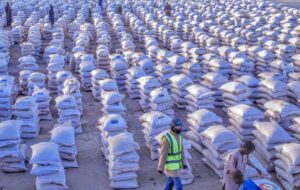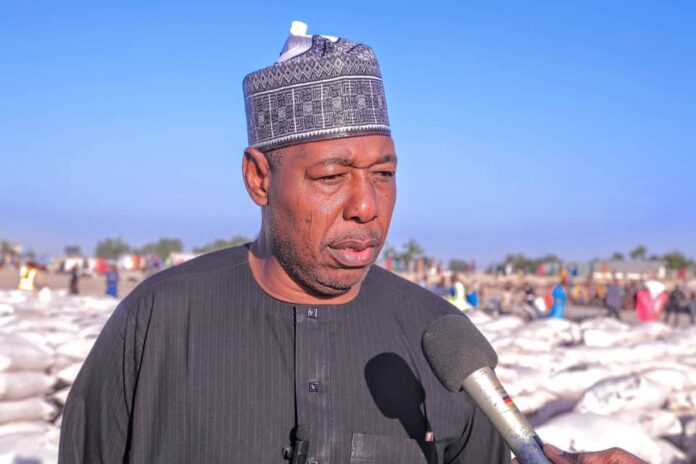Borno State Governor, Babagana Umara Zulum commenced the distribution of about 100 trucks of food items donated to the state by President Bola Ahmed Tinubu in Ngala local government area.
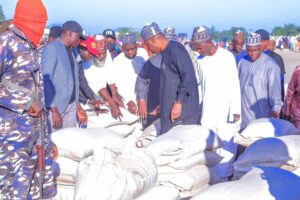
The distribution took place on Monday at designated centres for residents of Gamboru, Ngala, and other communities, where food supplies were cut off in the last four months due to heavy rain and flooding.
The grains, which include maize, sorghum and millet, have been distributed to households prioritising the most vulnerable.
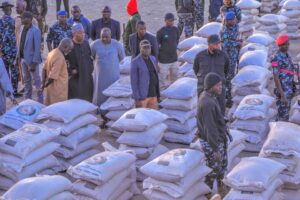
Speaking to journalists after flagging off the distribution, Zulum explained the choice of Ngala. He said, “This morning, we flagged off the distribution of 100 trucks of assorted grain to communities in Ngala local government.”
He added, “This town was completely cut off from the rest of the country for about four months due to heavy rainfall and flooding.
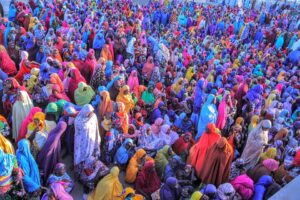
The movement of food items to Ngala has been cut off. This informed our visit today to provide relief to cushion the hardships faced by the people.”
Zulum commended President Bola Ahmed Tinubu and all relevant federal government agencies for supporting the state government in ensuring that those most in need received adequate supplies.
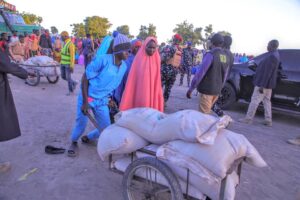
“All of the food items we shared today were donated to us by President Bola Ahmed Tinubu.
The President has given us 100 trucks of assorted grains, including maize, millet and sorghum. In addition, the federal government has provided 100 trucks of rice for the victims of the Maiduguri flood disaster,” Zulum said.
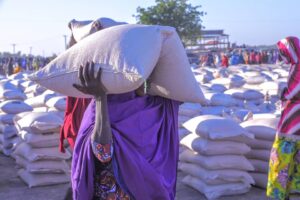
The governor also stated, “Let me use this opportunity to commend the federal government under the leadership of President Bola Ahmed Tinubu for supporting our people in the time of their needs.”
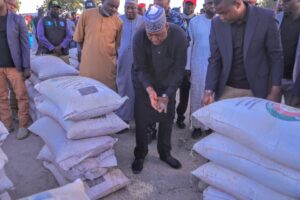
Governor Zulum, however, explained that his administration is gradually discontinuing the distribution of food items and supporting residents through the establishment of irrigation activities in resettled communities.
He said, “The state government has put in place medium—and longer-term sustainable solutions that will ensure people cultivate their lands all year round. We are establishing many irrigation structures, particularly in Ngala local government.”
